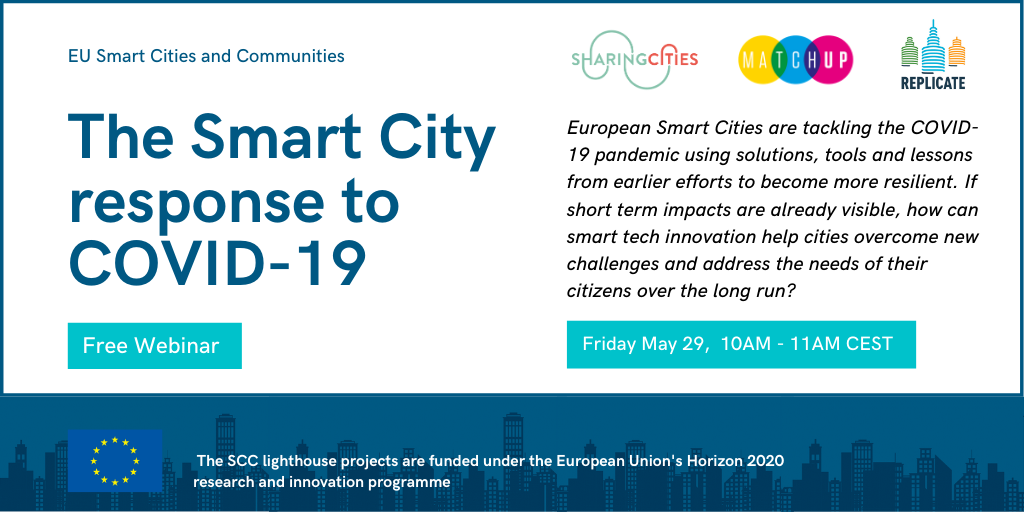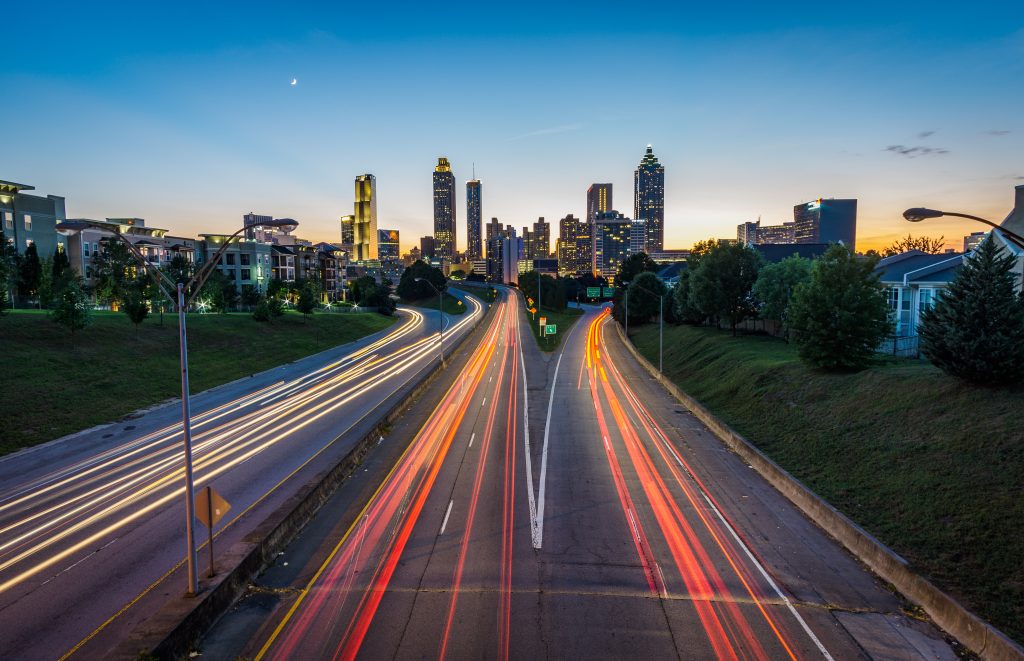As Europe began its lockdown, the hundreds of cities involved in the European Smart Cities Programme were no exception. Benefitting from their experiences, the cities have been using different applications of smart technology to inform their recovery plans.
Advanced solutions in the fields of energy management and urban data sharing were discussed at a recent event organised by the Smart Cities and Community Lighthouse projects – funded by the European Union through the Research and Innovation programme Horizon 2020 – and moderated by Albert Engels, Coordinator for the RUGGEDISED project in the City of Rotterdam. The projects MAtchUP, REPLICATE and Sharing Cities presented their solutions.
Opening the online session, Georg Houben, Policy Officer in the Europeans Commission’s Directorate for Energy and responsible for the European Smart Cities Marketplace, stressed the importance of delivering of smart, socially inclusive and energy-efficient solutions adapted to the local context:
“It is even more valid and important in post-COVID-19 times simply because COVID-19 has strengthened the need for smart solutions. With more citizens working from home or being in a situation which they have never been in before. When it comes to the local communities and the local collaboration COVID-19 is putting even more emphasis on that,” said Georg Houben of the European Commission.
Valencia Leads on Telecommunications
The lighthouse city of Valencia has been selected by the United Nations’ agency for International Telecommunication (ITU) to lead the international task force ‘Emergency response of Covid-19 cities’. Valencia will provide a global data-sharing platform and develop a policy framework for smart management of public health emergencies in cities.
“The initiative is in line with SDG11 and is therefore committed to making cities and human settlements inclusive, safe, resilient and sustainable. The city is not new to joint actions with the UN, we’re proud to receive this international role and committed to doing our best” said Ernesto Faubel, MAtchUP coordinator.
Valencia gave birth also to the Spanish initiative Frena La Curva, a citizen platform to channel and organise social resilience to the COVID-19 pandemic by providing a bottom-up response complementary to that of government and public services.
“In a couple of months, more than 9,000 free public services were offered and provided by citizens across Spain. The key ingredients for the success of the initiative are the social innovation of the activity, the collaborative approach of the tool used and the active participation of citizens,” explained Gema Roig, technical expert in LAS NAVES Innovation Centre of Valencia.
Optimizing Energy Systems at Scale
Sharing Cities has been looking at the role that the technologies tested in the Lighthouse cities of London, Lisbon and Milan can play in the response and recovery to COVID-19.
“In this ‘new normal’, the way we move around cities and use energy is fundamentally changed. As citizens are advised to spend more time in their homes, the quality of housing becomes even more important” says Sandy Tung, Programme Manager for Sharing Cities.
Through Sharing Cities’ work on conducting deep energy building retrofits to make them more energy-efficient, demand-side response and integrated Sustainable Energy Management Systems, smart technology can help to ensure that more people live in low carbon, well-connected homes.
The programme also recognises that zero-carbon targets will not be achieved only through top-down policy; it also requires bottom-up action from local stakeholders including citizens. Solutions developed by Sharing Cities such as the Digital Social Market to incentivize citizens towards positive behaviour change have the potential to further increase the resilience of energy systems, create vibrant communities, encourage low-carbon lifestyles, and still look to achieve sustainability goals.
Monitoring Traffic Flows of the Pandemic
During the event ‘The Smart City response to COVID-19’, the Smart City-Lighthouse City Florence spoke about the “Smart Traffic Management” used throughout the COVID-19 crisis in Florence. The city, located in one of the most affected countries by the global pandemic, has been using the changing vehicles flow data, in the COVID-19 time, to get interesting and relevant conclusions by analyzing it.
Alessandra Barbieri (City of Florence – Replicate Project Manager) and Chiara Lorenzini (City of Florence – Replicate Mobility and KPI Data Analyst) were in charge of talking about how Florence measured the “temperature” of the city with traffic flows in the time of COVID-19.
“The cameras are able to count the vehicles and measure the speed of them and we want to expand this by adding 200 camera sensors and 300 bluetooth sensors for travel time estimation. Thanks to this technology, during the lockdown days, traffic flow reduction has been observed day by day to monitor citizen and city users activity,” explained Chiara Lorenzini, Replicate Mobility and KPI Data Analyst.
They shared with the more than 100 attendees how the city is preparing to face the “Phase 3” during the next month until September. This phase will include measures related to the reopening of schools or the use of public transport.
For more information on what Smart Cities are doing to respond to COVID-19, please search for the hashtag #EUSmartCities on Twitter or join some of the many online events planned in the Smart Cities Community in the coming weeks and months.
The slides are also available from each of the three cases:


